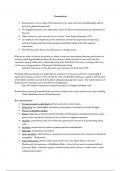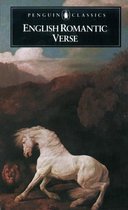Romanticism
➢ Romanticism covers a range of developments in art, music, literature and philosophy, and the
term was applied retrospectively.
➢ The English Romantics were inspired by a desire for liberty and denounced the exploitation of
the poor.
➢ ‘Man is born free, and everywhere he is in chains’ - Jean-Jacques Rousseau, 1762.
➢ An emphasis on the importance of the individual, stressed the importance of expressing
authentic feelings and believed that people should follow ideals rather than imposed
conventions.
➢ They felt they had a duty to use their poetry to change society.
What we see when we look at the period as a whole is rather an extraordinary flowering and richness of
creativity, involving individual writers who were drawn to think and write in new ways, and who
sometimes enjoyed collaborative relationships with other individuals. It is only in retrospect that each
can be seen as a larger pattern of ‘Romantic’ thinking and writing.
- John Beer ‘Literature’ in The Romantic Age in Britain, ed. Boris Ford, 1992
Politically it [Romanticism] was inspired by the revolutions in America and France…Emotionally it
expressed an extreme assertion of the self and the value of individual experience…together with the sense
of the infinite and the trascendental. Socially it championed progressive causes…The stylistic keynote of
Romanticism is intensity, and its watchword is ‘Imagination’.
- from The Oxford Companion to English Literature, ed. Margaret Drabble, 1985
Romanticism is precisely situated neither in choice of subject, nor in exact truth, but in a way of feeling.
- Charles Baudelaire (French Romantic poet)
Key characteristics:
➢ Prestige attached to individuals and their particular creative talents.
➢ Subjectivity was valued highly, sometimes at the expense of rational or scientific thought.
➢ Threat to established religion
➢ Nature: beginning to be threatened by the effects of urbanisation and industrialisation; valued
nature more, veneration of nature was seen as akin to a religious experience.
➢ Morality: conventional codes of morality were questioned in favour of more liberating ethnic
codes.
➢ Socialism: tension between radical socialism and fierce individualism.
➢ Politically: revolutionary and radical.
➢ Anti-rationality: valued emotion, sometimes in extreme passionate form, ‘emotion recollected in
tranquillity’ - Wordsworth
➢ State of innocence: admired and focused on this state, ‘the child is father of the man’ -
Wordsworth, the importance of childhood, Blake - critical of how society corrupts children’s
innocence, Plato - souls were together as flames before birth in heaven, ‘a child comes to earth
trailing clouds of glory’





